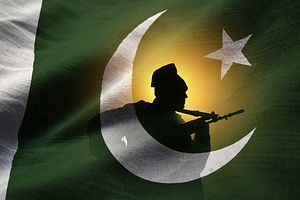On May 29, 1988, a senior official of the Pakistan Intelligence Bureau was abducted in Islamabad. His abductors were not a criminal gang or terrorist organization. Rather, they were personnel from the Inter-Services Intelligence Directorate (ISI). According to their own account of the incident, narrated in the news magazine Herald, they beat up the IB official until he revealed the location of a secret telephone exchange that was monitoring calls made by military dictator Zia-ul-Haq. Zia had recently decided to dismiss his civilian prime minister, Muhammed Khan Junejo. To ensure his plans were not interfered with, he tasked the ISI with preemptively shutting down the civilian IB’s surveillance of his telephone lines. Since the ISI did not know where the IB’s listening post was located, it resorted to direct methods to find out. And thus continued the tradition of “managed democracy” in Pakistan.
Pakistani leaders, military, and civilian, often blame a “foreign hand” – and especially an Indian hand – to cover up bureaucratic turf warfare and inept governance. English-language Pakistani media reports elucidate instances of this over the years. After digging into more than two decades of press coverage on the so-called “foreign hand” in Pakistan, what emerges is a portrait of the intellectual failure of the country’s political elite to face up to reality: They have no one to blame for Pakistan’s problems with terrorism except themselves. The Research & Analysis Wing (R&AW, but often abbreviated RAW), India’s external spy agency, is thus little more than a “MacGuffin” in Pakistan’s domestic political drama. But unlike a Hitchcockian drama – indeed, Alfred Hitchcock mainstreamed the term – there is no end to the suspense. The Pakistani military is utterly determined to retain its privileged status in the country, come what may, and civilian politicians are too craven to resist.

































